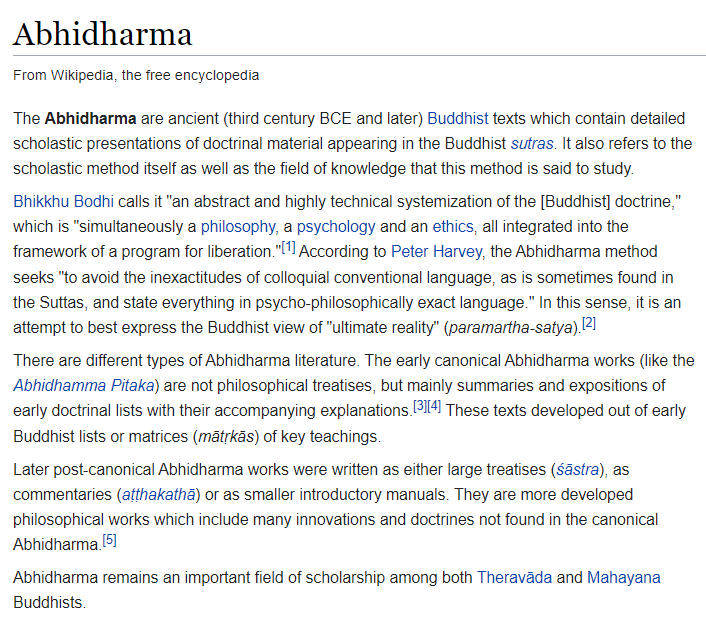
Buddhist formal psychology (found in the Abdhidharma 3rd BCE) considers the "mind" as an organizing process which makes coherent to a person the stream of their perceptual input. Disruption of brain function then disrupts "mind" function leading to "scrambled brain"./1 

Psychedelics, hallucinogens, excessive stress, grief, hypoglycemia, ischemia, stroke, encephalitis, exhaustion etc. can all disrupt capacity of mind to provide a coherent perceptual experience./2
The process making your #experience coherent is not 'you'.
Walking is not 'you' - it is a process, coupled to motivation, intent, decisions, and functional capacity. The "mind" is not 'you'. It supports body-directed goal oriented behavior. Hunger - not philosophy./3
Walking is not 'you' - it is a process, coupled to motivation, intent, decisions, and functional capacity. The "mind" is not 'you'. It supports body-directed goal oriented behavior. Hunger - not philosophy./3
I define awareness as the capacity to engage with experience. Under general anesthesia this capacity is altered.
I define consciousness as the capacity to report experience to oneself ("thinking", "internal monologue") or others using language./4
I define consciousness as the capacity to report experience to oneself ("thinking", "internal monologue") or others using language./4
If there is no self-report of consciousness, there may still be awareness. The optic and acoustic nerves still function - there is electrical activity - it is the capacity to recognize and report perceptual stimuli that GA compromises./5
My opinion then is that awareness and consciousness are technical terms describing different entangled aspects of perception. Ego is a different, perhaps independent, monitoring and control process (my definition).
Buddhists group the 5 senses and the organizing "mind" as the six aspects of fundamental perception. These six "senses" crease a coherent perceptual experience./7
"Monkey mind" is the #Buddhist technical term for all the various associations, triggers, misinterpretations, and other processes in which there is an experience of #suffering. It is also call the "seventh consciousness"./8
"Monkey mind" usually feels like it is on autopilot guided by #ego. Hence unreliable. Each perceptional action has the potential, and virtual inevitability, of contamination by monkey mind. Each contamination can precipitate an embodied emotional process. /9
We feel that embodied emotion in ventral surfaces for fear and disgust - throat muscles, anterior neck muscles, anterior thoracic muscles. Anger triggers dorsal musculature to tense. Interoceptive responses include input from semi-autonomous heart and gut nervous systems./10
The HPA axis, the RAA, and brainstem can also be activated by triggering of an embodied emotion. The reactions of all these systems, muscular, neuroendocrine and autonomic nervous system, are usually perceived as "suffering"./11
Triggering by monkey-mind-associations can occur within the first 200 msec of new perceptual experience. Any mindfulness practice (meditation, sports, musical and other artistic performances etc.) can provide training in not reacting in that first 200 msec./12
That's all mindfulness practice has to offer.The shooter game demonstrates how quickly our associational contamination of clear perception occurs. Here the authors report 230 msec./13 

In Buddhist psychology that first 200 msec functions to establish an initial positive, negative, or neutral reaction (still automatic) to a new form in our perceptual experience. In Sanskrit called vidana. In neuroscience this process is called "valence" attribution./14
Survival circuits can be activated by such a "valence" leading to reaction to a situation rather than responsiveness. Shoot first - ask questions later. I consider this the beginning of bias, as any out-group form may be given a negative valance./15
The classic Buddhist analogy is a branch in the road being initially perceived as a snake, leading to fear and avoidance. Especially at dusk./16
A #misinterpretation facilitated by twilight conditions. #Geronimo, and now the #Ukrainians, expertly use such misinterpretations for military success. I like this historical fiction despite the personal foibles and opinions of the author./17
amazon.com/Watch-Me-Mount…
amazon.com/Watch-Me-Mount…
To sum up: If we understand our perceptual processes, and make effort to discipline ourselves to respond rather than react, decisions are better and suffering decreases. Both western neuroscience and Buddhist psychology agree. /End
mindandlife.org/insight/buddhi…
mindandlife.org/insight/buddhi…
@threadreaderapp unroll please
• • •
Missing some Tweet in this thread? You can try to
force a refresh




